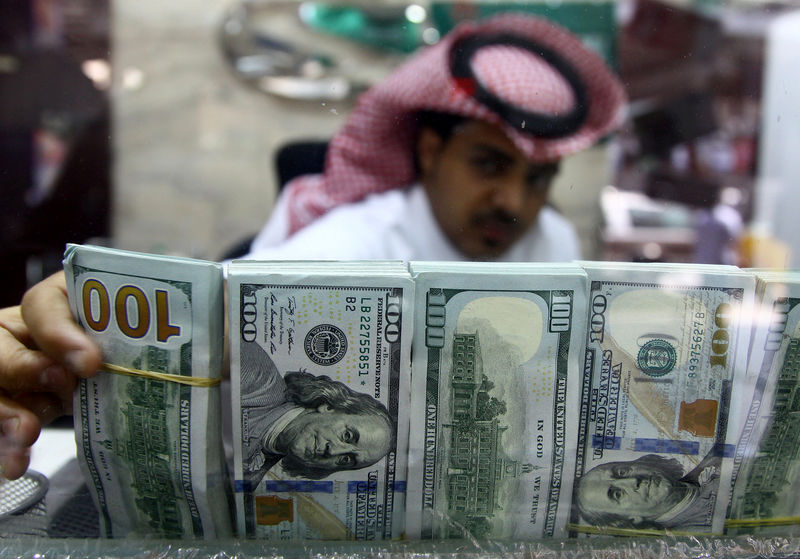DUBAI (Reuters) - Saudi Arabia on Wednesday reported a third-quarter fiscal deficit of 7.3 billion riyals ($1.95 billion), a big drop from the 48.7 billion riyals reported a year earlier thanks to a surge in oil revenues.
The latest deficit figure was close to the 7.36 billion riyals recorded in the second quarter.
"The improvement in fiscal performance is reflected by the decrease in the deficit with positive oil and non-oil growth, compared to the same period in 2017, and the planned budget," Finance Minister Mohammed al-Jadaan said in a statement.
A ministry statement quoted Jadaan as saying that "regardless of the Q3 positive indicators, challenges in the public finances still exist and require us to maintain our efforts to move forward with our reforms".
The kingdom, which has launched a number of economic reforms meant to diversify its oil-reliant economy, has forecast a deficit of 195 billion riyals or 7.3 percent of gross domestic product (GDP) this year, down from 230 billion last year.
Riyadh aims to balance its budget by 2023.
Government revenues for the third quarter rose 57 percent quarter-on-quarter to 223.3 billion riyals, the statement added, with oil revenue jumping 63 percent to 153.95 billion riyals, driven by an increase in international crude prices.
Non-oil revenue rose 45 percent quarter on quarter to 69.3 billion riyals.

($1 = 3.7509 riyals)